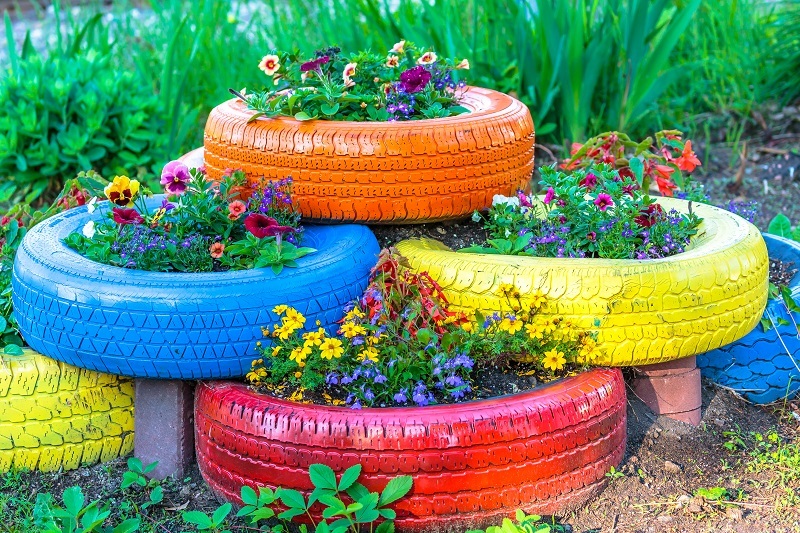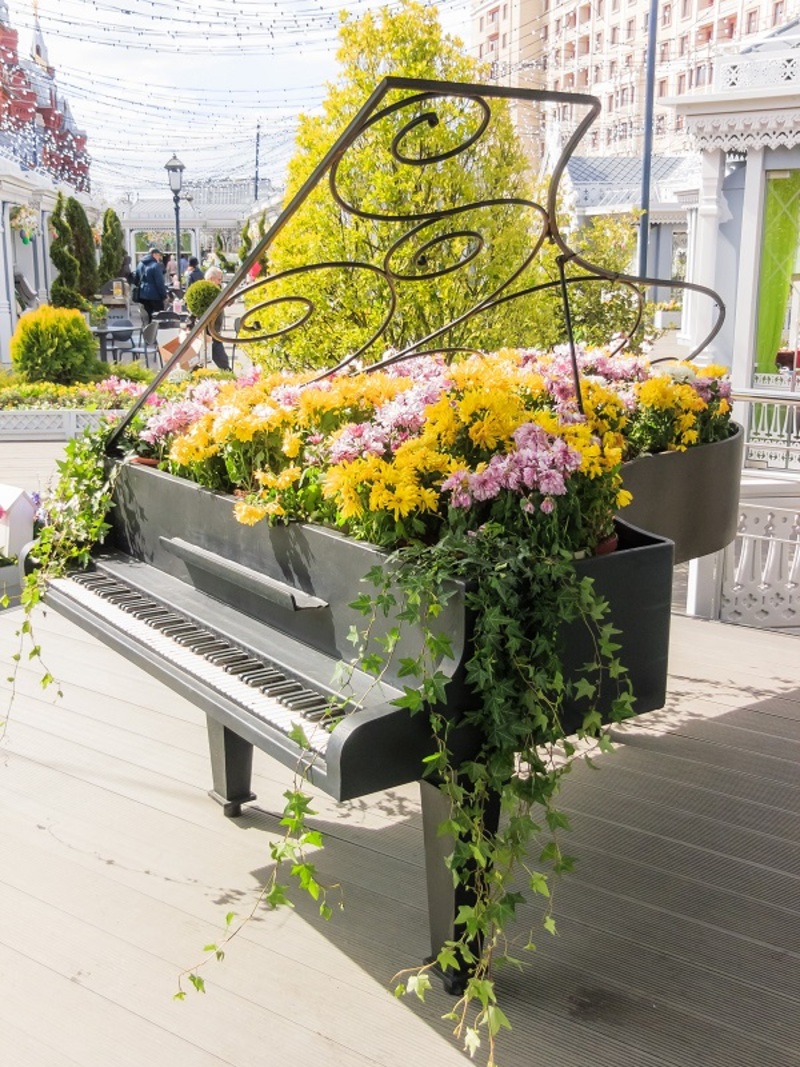Ensure Your Poinsettias Thrive: A Guide
Posted on 13/08/2025
Ensure Your Poinsettias Thrive: A Comprehensive Guide
The holiday season is synonymous with the vibrant, iconic poinsettia plant. Adorning homes, offices, and places of worship, these festive blooms offer more than just a pop of seasonal color. But to ensure your poinsettias thrive, a little know-how goes a long way. This in-depth guide provides all the essential tips and expert advice to keep your poinsettias healthy, beautiful, and long-lasting.
Why Choose Poinsettias? — The Symbolism and Appeal
Native to Mexico, the poinsettia (Euphorbia pulcherrima) stands out for its dazzling red, pink, white, and even variegated bracts, often mistaken for flowers. Traditionally linked to Christmas, these cheerful plants symbolize celebration, good cheer, and lasting success. Beyond their beauty, learning to keep your poinsettias thriving delivers satisfaction and can even be a fun family tradition each winter.

Selecting the Best Poinsettia for Your Home
The journey to thriving poinsettias begins with choosing a healthy plant. Whether you purchase from a garden center, supermarket, or nursery, look for the following qualities:
- Bright, vibrant bracts - the colored leaves should be lush, not faded or spotted.
- Rich green foliage - leaves should extend down the stem, with no signs of wilting or yellowing.
- Sturdy stems - a robust central stem indicates a strong root system.
- Intact cyathia - these are the small yellow-green buds at the plant's center (actual flowers); if they are present and unwithered, your poinsettia is fresher.
Proper Placement: Finding the Ideal Spot for Your Poinsettia
Placement is key to ensuring your poinsettia thrives. These stunning plants love indirect sunlight and stable conditions. Follow these guidelines for the best results:
- Indirect, bright light - place your poinsettia near a sunny east or west-facing window.
- Avoid drafts - steer clear of areas near exterior doors, open windows, heating vents, or fireplaces.
- Consistent temperature - maintain a daytime temperature between 65-75?F (18-24?C) and never allow the plant to experience temperatures below 50?F (10?C).
- Humidity - poinsettias appreciate moderate humidity, which can be maintained with a humidifier or tray of water and pebbles nearby.
Watering Poinsettias for Longevity
Perhaps the most crucial aspect of poinsettia care is watering. Overwatering is a common culprit in failing plants. Keep your poinsettia in peak condition by following these precise watering tips:
- Check soil moisture regularly – water only when the top inch of the soil feels dry to the touch.
- Drainage matters – always remove the decorative foil or punch holes in it, so excess water can escape.
- Water fully, not frequently - give a thorough soak, then let the plant drain completely.
- Never let the plant sit in water - this will cause root rot and spell disaster for your poinsettia.
Pro Watering Tip:
If in doubt, it's better to underwater than overwater. Poinsettias recover more easily from dryness than soggy roots!
Fertilizing Your Poinsettia for Continued Growth
While holiday poinsettias often don't need fertilizing while in bloom, if you wish to keep your plant past the season, regular feeding is essential:
- After flowering, use a balanced, all-purpose houseplant fertilizer every 2–4 weeks.
- Apply only when the plant is actively growing, typically in spring and summer.
- Always follow package instructions to avoid root burn or leaf damage.
How to Keep Poinsettias Thriving All Year Long
With the right care, poinsettias can last well beyond the holidays--and even rebloom the next year! Here's how to transition your poinsettia through the seasons:
Post-Holiday Care
- Pruning: In early spring (late March or April), cut the plant back to about 6 inches high.
- Repotting: Move your poinsettia to a slightly larger pot with fresh, well-draining potting mix.
- Resume watering and feeding: As the plant begins new growth, maintain even moisture and feed with fertilizer.
Summer Growth
- Outdoor placement: Once nighttime temperatures stay above 55?F (13?C), your poinsettia plant can enjoy a summer vacation outdoors in partial shade.
- Pinching back: Encourage bushier growth by pinching back new stems in late June and again in August.
Preparing for Reblooming
To induce the vibrant bract coloration poinsettias are famous for, simulate short fall days:
- Starting in early October, place your plant in complete darkness for 14 hours nightly (such as a closet or box) and in bright light for the rest of the day.
- Continue for 8-10 weeks.
- Once colored bracts appear, bring it back to its display spot and resume regular care.
This process, called photoperiodism, is essential for those wishing to keep poinsettias thriving and blooming season after season.
Common Poinsettia Problems & Solutions
Yellowing or Dropping Leaves
- Overwatering or cold drafts are usually to blame. Check soil moisture, room temperature, and air flow.
Wilting, Soft Stems
- This often signals root rot. Remove the plant from its pot, cut away blackened roots, and repot in fresh soil if salvageable.
Faded Bracts
- Insufficient light is a common cause. Move the poinsettia to a brighter spot out of direct sun.
Pest Issues
- Whiteflies, spider mites, or aphids can affect your poinsettia. Inspect leaves regularly and treat promptly using insecticidal soap or neem oil.
The Truth About Poinsettia Toxicity
Poinsettias have a reputation for being highly toxic, but this is overblown. According to scientific studies, the plant is only mildly irritating if ingested and not deadly poisonous. However, keep them out of reach of pets and children, as they can cause mild stomach upset or skin irritation.
Decorating with Poinsettias: Creative Ideas
- Mix colors - group red, white, and pink poinsettias for dramatic effect.
- Table centerpieces - small poinsettias in decorative pots brighten holiday dinners.
- Use in wreaths or garlands (artificial or mini varieties work best).
- Combine with greenery - layer with pine, holly, or eucalyptus for a lush, festive display.
Frequently Asked Questions about Caring for Poinsettias
How long can a poinsettia survive indoors?
With proper care, a poinsettia plant can last months or even years indoors. The key is to avoid extremes in water, temperature, and draft.
Can I plant my poinsettia outside in the garden?
In warm climates (USDA zones 9& above), poinsettias can be planted outdoors after the risk of frost. They may grow into shrubs several feet tall! In colder zones, treat them strictly as houseplants.
Why aren't my poinsettias blooming again?
Reblooming requires strict photoperiodism, as explained above. Missed dark periods or nearby streetlights can interrupt the process.
Are poinsettias safe for pets?
While not deadly, they may irritate mouths or cause mild digestive upset if chewed. Keep all houseplants out of reach of curious pets.

Quick Checklist: How to Ensure Your Poinsettias Thrive
- Start with a healthy plant; choose robust stems and vivid bracts.
- Provide bright, indirect light and stable temperatures.
- Water only when needed, and drain thoroughly.
- Fertilize during active growth (spring/summer) for plants kept year-round.
- Prevent drafts and avoid sudden extremes.
- Follow a photoperiod schedule if you want holiday blooms next season.
Enjoy Your Thriving, Festive Poinsettias!
There's no better way to brighten your holidays than with vibrant, healthy poinsettias. By following this ultimate poinsettia care guide, you'll enjoy lush color, robust health, and perhaps even blooms for seasons to come. Share your knowledge, inspire others, and make poinsettia care a cherished part of your holiday celebration!
Ready to ensure your poinsettias thrive? Use these proven tips and enjoy a dazzling display all season long – and beyond!
Latest Posts
Unveil the beauty of your hydrangeas with proper care
Explore 7 Hidden Secrets of Tulips
What Your Birth Flower Can Tell About Your Inner Self





